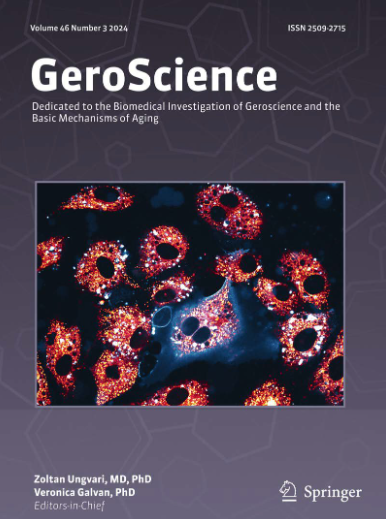年龄和音乐训练对静息状态周期性振荡脑活动的影响。
IF 5.4
2区 医学
Q1 GERIATRICS & GERONTOLOGY
引用次数: 0
摘要
神经振荡包括周期性和非周期性成分,它们与认知功能有关。振荡活动的变化作为年龄和音乐训练的功能可能与认知能力下降和终身音乐训练的保护作用有关。然而,在评估α振荡随年龄和音乐训练经验变化的先前研究中存在不一致性,这些研究没有考虑非周期性活动的假定影响。在这项研究中,我们招募了年轻、年长的音乐家和非音乐家,比较了校正非周期性活动前后的静息状态α振荡。我们观察到,在未校正和校正的周期性活动中,α能量的下降与年龄有关。尽管如此,音乐训练对这种下降的保护作用仅在纠正的周期性活动中明显,强调了纠正非周期性活动的重要性。这与年长的音乐家在工作记忆任务中的表现比年长的非音乐家更好有关。我们的发现为长期音乐训练如何减缓与年龄相关的工作记忆衰退提供了机制上的见解。这对理解音乐训练对认知衰老的神经可塑性具有重要意义。本文章由计算机程序翻译,如有差异,请以英文原文为准。
Effects of age and musical training on resting-state periodic oscillatory brain activity.
Neural oscillations comprise periodic and aperiodic components, which have been linked to cognitive functions. Changes in oscillatory activity as a function of age and musical training may related to cognitive decline and the protective effects of lifelong musical training. However, there are inconsistencies in prior studies assessing the changes in alpha oscillations with age and musical training experience, which did not consider the putative impact of the aperiodic activity. In this study, we recruited young and older musicians and non-musicians, comparing resting state alpha oscillations before and after correcting for aperiodic activity. We observed an age-related decline in alpha power in uncorrected and corrected periodic activities. Nonetheless, the protective effect of musical training on this decline was only evident in the corrected periodic activities, highlighting the importance of correcting for aperiodic activity. This was related to better performance in working memory tasks in older musicians compared with older non-musicians. Our findings provide mechanistic insights into how long-term musical training decelerates age-related working memory decline. It has implications for understanding the neuroplasticity of musical training on cognitive aging.
求助全文
通过发布文献求助,成功后即可免费获取论文全文。
去求助
来源期刊

GeroScience
Medicine-Complementary and Alternative Medicine
CiteScore
10.50
自引率
5.40%
发文量
182
期刊介绍:
GeroScience is a bi-monthly, international, peer-reviewed journal that publishes articles related to research in the biology of aging and research on biomedical applications that impact aging. The scope of articles to be considered include evolutionary biology, biophysics, genetics, genomics, proteomics, molecular biology, cell biology, biochemistry, endocrinology, immunology, physiology, pharmacology, neuroscience, and psychology.
 求助内容:
求助内容: 应助结果提醒方式:
应助结果提醒方式:


